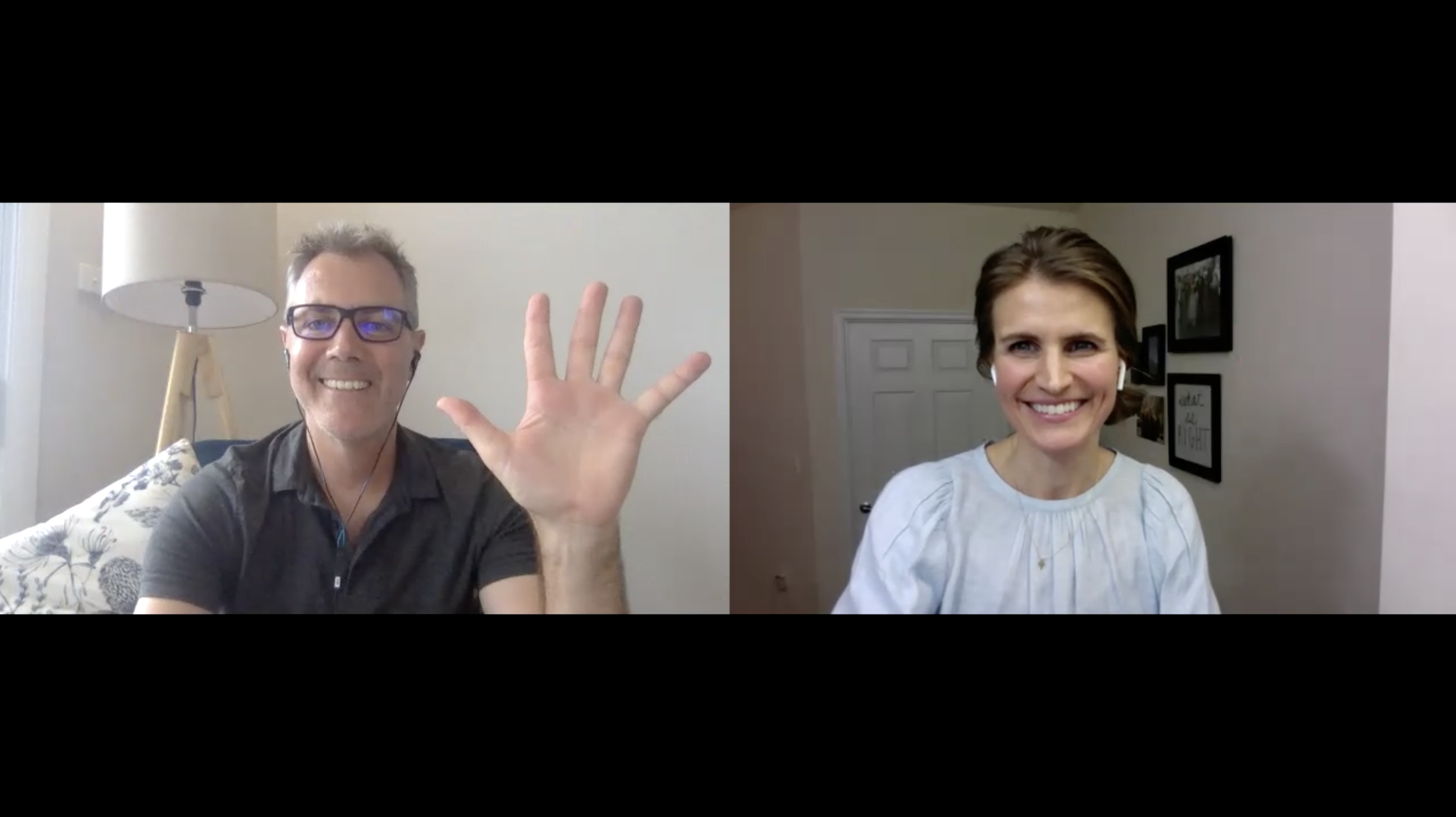He sat in silence, closing the door and turning off the phone until his project was complete. She called him every day to talk through her latest ideas, questions and issues.
He gathered data by reading. She gathered personal experiences through relationships and conversations.
He led with answers. She asked questions to seek consensus.
He established well-researched processes and set them in stone. She sought flexibility and responsiveness.
His expertise was marketing. Hers was training.
They were the perfect business partnership. Or they could have been.
As a peer turned leader, gripped by a real fear of being caught up in the merger’s mass layoffs, Mark took his marching orders and executed. He formed boxes of performance and responded to his fear with the grips of control. Melissa, with 20+ years of experience and a track record of impeccable reviews and results, found herself suddenly, awkwardly trying to mold her mind and role into his box. They both struggled to create a department from scratch within a company run on a fear of failure.
Like trying to zip up a suitcase filled passed it’s limit, Melissa found herself squeezed and pressed and poked from every direction. In a role she had always loved, now, she was practically suffocating.

Melissa was made for innovation and entrepreneurship. As a confident idea generator and people-focused communicator, she thrived in positions that were dynamic and collaborative. Right out of the starting blocks of her career, she landed in an organization that not only appreciated, but craved the suggestions that drive customer-relevant progress, and she was an instant pro. She bounced around strategically from role to role, driving revenue with new ideas and energized by the electric nature of entrepreneurship in a rapidly growing organization. She had found a perfect fit for her professional soul.
After 18 years of professional thriving, the organization was acquired by a large, successful firm. On paper, it was a masterful merger. In reality, the cultures clashed. Mass layoffs lead to justified fear of loss, and the entrepreneurial culture of her organization was swallowed up by the stay-in-line environment of the acquirer. Ideas from the middle were no longer valued, and attempts to suggest improvements that were outside the accepted cultural views were met with severe reproach. On many occasions, Melissa was told to stay in her lane.
So, for a year, that is what she did. Instead of keeping her eyes open and her ears alert, she put her head down and did everything she could to remain inside the boundaries she had been given. And she was okay. She was not thriving, but she was not suffering.
Then, a year after the acquisition, business reorganization struck again. With the shadow of job loss looming, Melissa felt she had been offered a fortuitous opportunity to partner in creating a new department from scratch. She was commissioned to build the bridges that connect marketing content with the tools and strategies that the sales team needs to build relationships with clients. It felt like the perfect fit. She was thrilled.
At the same time, however, her new role was arranged to fall under the leadership of a former peer. From the inception of the reorganization, Mark and Melissa both sensed it. Something was not quite right.
Measured against constantly changing criteria from the top, Mark reacted with stressed frustration, and passed on responsibilities that lacked clarity of direction. Melissa responded by asking questions to narrow in on the objectives and ensure she was on track with the projects he had assigned.
As peers, they had been collegial and friendly toward one another, but as she came under his management, the relationship began to get confusing and complicated. Pressed by the stress of the corporate unrest, the differences in their work styles were highlighted and exacerbated. She found success in collaboration while he worked alone. She generated ideas by talking them through while he created his best work after reading a book.

Quickly, Melissa found herself being criticized and corrected for her collaborative style, for activities like calling sales people to find out what was truly happening in the field. She was told on many occasions not to “bother” the sales people. She was perplexed and confounded by his approach to pass out orders versus her intuitive style that asked questions to form solutions.
Their working styles were completely misaligned. Melissa was perplexed and frustrated as he tried to zip up his suitcase around her role and style.
One day, about ten months into her role under Mark, she walked into the lowest guttural blow of her career. The grayness of the winter day outside matched the coolness of the whispers that spread throughout the halls of the still volatile company. Performance review season had set a new sense of unrest among Melissa’s closest colleagues.
She hesitated momentarily to take a deep breath before she picked up the phone for their scheduled call. Melissa knew that their working relationship was on the fritz. For the past month, Mark had been subtly and blatantly passing on his discontent. He had stopped taking her calls so regularly. When she asked for his input and his guidance on direction, he responded by pulling the entire project from her and doing it himself.
Despite the bumps with Mark, Melissa also knew that for 20 years she had received the highest marks, praise for her contribution, and confidence-boosting assurance of a job well done. And now, under tumultuous cultural conditions, she was working hard toward the corporate goals and helping to move the ship forward. She hoped her history and her diligence would be enough to come out with a positive review experience.

When he picked up the line, Mark’s voice tripped up with unexpected emotion, and he rushed to say what he had rehearsed. He said:
Listen, I’ve spent quite a bit of time trying to articulate what’s going wrong between us. I’ve written everything up in your performance review. I’d like to email it to you and give you some time to think about what’s in it. When you’re ready, call me. I’ll be here all day.
The haze of the next 30 minutes sent Melissa spiraling into confusion and self-doubt. Everything she had ever been praised for was now a cause for correction. Her open and collaborative style was seen as obtrusive and slow. Her ability for fact finding and consensus building were seen as unsupportive of the leadership.
For the first time in her professional life, she was choking back tears of hurt and confusion.
The review detailed her shortcomings and failures in searing black and white. And as she read, she internalized his position. For the first time, she saw that his assertions and observations pointed to something hidden more deeply inside her. Instead of embracing her natural talents as she had in the past–by assessing, providing her opinion, and charging forward–she had spent ten months in a position of passivity and fear. Instead of stepping out confidently, she had approached with insecure questions that sought validation over clarification. This, she saw more clearly now, made her seem incapable of doing her job.
Clearing her mind and head with a fresh cup of coffee, she reached out to dial his number again. Their conversation was both compassionate and frank. She reflected her thoughts and severe disappointment. He seemed relieved to know he had finally aired out his frustration—she had received his message. They ended collegially, but with a sense that Mark’s mind had already started stewing over future possibilities–possibilities that did not include Melissa’s contribution.
Over the next several months, despite her revelation about the review, her wildly successful past, accolades from her colleagues, and the sense in her gut that she really was OK, she started to believe his story about her—the story that said she was unable to work on her own, unable to create sales tools to enable the team, unable to use the skills that the salespeople used, that she was failing. And she realized that in her paralyzing fear of losing her job, she had become someone desperate to fit into a box without even having the benefit of knowing what shape the box held or where it was going.
Then, during the most critical and public corporate event of the year, her body broke down. She was suddenly and violently ill, and she missed the entire opening event.

In the months of turmoil leading up to the event, as she grappled for help and understanding, Melissa stumbled upon the support of a coach. With a foggy head and emotionally drained spirit, she pursued a process of self-awareness and understanding, with hope that it could right her sinking ship.
Slowly, over several months, as she discovered a new language to describe her most natural Talents and a new and uplifting perspective that constantly reoriented her back to strength, she began to see both the root of her past success and the route to her future freedom. She could now see that it was her greatest and most natural strengths that were the very things being scrutinized, criticized, and belittled. On the other hand, everything being asked of her, relentlessly and ruthlessly, was paradoxical to her wiring.
Just short of a downward spiral into severe self-critique, Melissa began to process Mark’s criticism through the lens of Strength.
By the time she was cold, shaking, and vomiting in the hotel bathroom during the annual event, she knew something had to change. And for the first time, she dared to believe, that something might not need to be her.
She absolutely could not ever thrive in a culture that required her to stay in her lane. She could not thrive in the company where she felt constantly afraid that she was about to lose her job at any moment. She could not thrive working alone, without the collaboration that gave her not only enthusiasm and joy, but ideas and insights.
The next call with Mark went much differently. Armed with a trembling confidence in her Strengths, she submitted her resignation. In their closing conversation, that ended with favor and respect, she let him know that she was not the one for the job—that it was better to part ways than to try to be something that she is not.
It is like she said:
You want me to be the person who fits nicely inside your suitcase. But I am not that person. My suitcase is much larger and much roomier than what you are offering. I tried. I really tried to squeeze into the corners of the bag. I tried to let you sit on the lid as you zipped it up. But in the end, I realized that my style, values, approach and talents will never fold into the nice, neat piles that fit will into your overhead bin. So, I need to be done trying to fit and find the luggage that is the right shape for me.
Today, after much thoughtful consideration and a courageous leap into the unknown, Melissa Hereford is back to following her entrepreneurial spirit. Based on a renewed, deep understanding of her own wiring and the values that drive her forward, she has crafted a role that feeds every one of her unique Strengths, daily.
And she has found nourishment.
She has found that her suitcase needs freedom to collect, to collaborate, to convince, to create. It needs space to ask questions, to find consensus, and to pursue the surprising opportunities of daily life. And now, as she closes down the lid of her luggage and zips it tight, there is safety and expectant celebration for the journey that this suitcase will travel.

Melissa Hereford will help you learn how to be yourself, get what you want AND build stronger relationships in everyday negotiations with your boss, your team, your clients. You can get your FREE email course at http://MelissaHereford.com.
LINKS | RESOURCES | CONNECT
Links & Resources
Get to know Melissa Hereford
Isogo TV Episode 8 | What if I have been told these “aren’t strengths”?
Isogo TV Episode 15 | The BEST 1-on1 Meeting PART 2
Isogo TV Episode 33 | Why You Actually CANNOT Be Anything You Want to Be
StrengthsFinder is Life Changing | Show Up with What You Bring {Step 6 of 9}
StrengthsFinder is Life Changing | Get Clear on Your Needs {Step 7 of 9}
{9 Steps} to Life Change through your StrengthsFinder Top 5 Strengths
Connect
As always, one of the best places to join the Strengths conversation is over at our Facebook Group — Energy Up Frustration Down by Strengths. Join us as we all try to figure out just how to use our Strengths to impact the most important things around us—in our work and life.
If you’re thinking about the way a Strengths-perspective could impact your marriage or your family or you’re just not so sure about it all, reach out, and let’s connect about it. You can catch me at Facebook, Twitter or Instagram, all at @isogostrong, or by this handy contact form.
Enjoy your day, and {be strong}!











